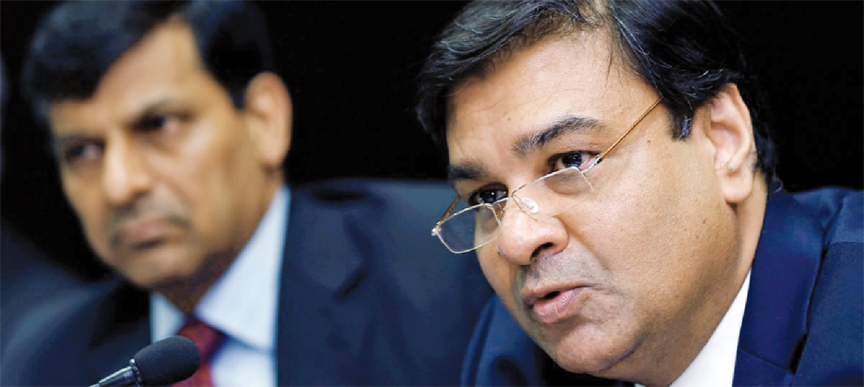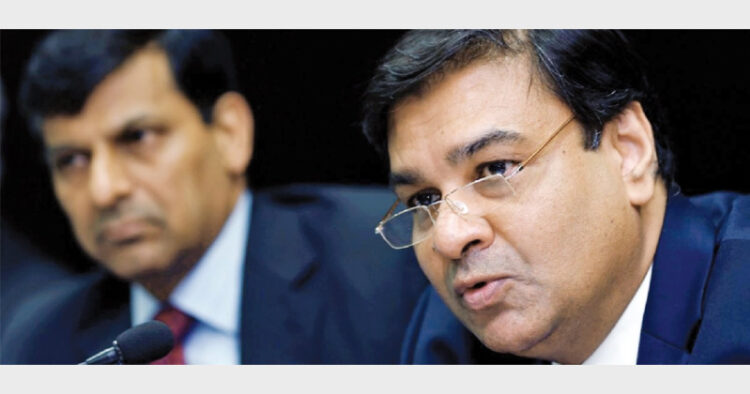 The new role of RBI Governor is a tight-rope walk for Urjit Patel, amidst high hopes expressed by market, industry and common man
The new role of RBI Governor is a tight-rope walk for Urjit Patel, amidst high hopes expressed by market, industry and common man
Ramakant Tiwari
Just two weeks down the calendar, Urjit Patel is going to be installed as 24th Governor of the Reserve Bank of India (RBI) at Mint Street. He takes over RBI at a time when inflation is gradually soaring, no concrete
outcome appears on the horizon with respect to Non-Performing Assests (NPAs) in spite of all the heat and dust kicked up by Public Sector Banks, Enforcement Directorate and CBI. News of his appointment itself has
marginally depressed Bonds market and stocks have slipped though it will be an exaggeration to say, prophets of doom are hyperactive. On the other hand, news of his appointment has been received with greater optimism by
several economists and leading
industrialists. HDFC Chairman Deepak Parekh agreed, “I think his appointment as RBI Governor is an excellent choice as it will bring stability and there will be no uncertainty.” Former RBI Governor C Rangarajan holds Urjit Patel “ideally suited” for the top job at the Central Bank.
First inflation, then employment generation followed by exchange rate are the economic verticals that directly affect common man. It was Urjit Patel who as Dy Governor, had introduced consumer prices mainly comprising of food items as basis for inflation
computation instead of wholesale prices, raising the susceptibility level enormously in view of impending onslaught of 7th Pay Commission Report and 3 per cent fiscal deficit
target. Inflation had hit 6.07 per cent in July i.e. 23 month high figure which is going to tie him down to details of
inflation micro-management for quite sometime. If he can introduce a
long-term mechanism to maintain inflation at tolerable rather ‘Vote-friendly’ levels in view of forthcoming Assembly elections in a country inhabited by ‘price-oversensitive’ voters, it shall be a remarkable achievement for the
incoming Governor. Prime Minister and his team shall be able to breathe easy for sometime, common man shall feel more assured of his savings and standard of life, albeit Opposition may remain
considerably distressed busy in burning their depleting calories at Jantar Mantar.
Who is Urjit Patel? Â Dr Urjit Patel, who has been appointed the Governor of the RBI by the government, was previously the Deputy Governor of the Central Bank. |
Second parameter that directly affects common man is employment generation. Without considerable boost to services and manufacturing industry, employment generation at best remains, marginal. Though India is now the best FDI friendly country in the world with Dollars raining in and foreign exchange reserves burgeoning, their transformation into production and employment generation has a long way to go. Though this lean period rather gestation period is sought to be covered with tremendous thrust in Skill India programme to promote
self-employment generation, overall scenario is still fuzzy. Another important factor is interest rate cut which is directly in the hands of RBI rather than the Governor. Interest rate cut will
certainly promote industry but it brings in more inflation too. Incumbent Governor Rajan has been a bit
conservative on this front for which he invited criticism from economists like Dr Swamy and Nobel Laureate Prof Joseph Stiglitz who cautioned him for being too rigid on rate cut. However, Governor Rajan largely preferred to maintain status quo on this issue and there had not been considerable rise in employment generation so far. Urjit Patel as his team member so far, cannot absolve himself from the bouquets and brickbats for the policy on rate cut that was followed hitherto. Now that he is in command of nation’s economy, he is at liberty to exercise his own free will and sense of professional judgement to steer nation’s economy. There the genius of Urjit Patel shall be at its best, hastening slowly, advancing cautiously and stoking expectations gently.
Exchange rate is the third
parameter that affects common man that includes international travellers, exporters etc. Herein too, Patel is not entirely at liberty to tinker with the exchange rate. Exchange rate must be pragmatic to derive maximum
advantages with minimum pain. Such a cautious approach shall have to to
continue till the economy is hamstrung by rising inflation and high rate of unemployment.
NPAs of PSBs and redemption of Foreign Currency Non-Resident (FCNR) deposits are other major issues to be encountered by the
incoming Governor though these do not affect common man so much. Almost half of the NPAs have been cleaned and sanitised while RBI has to gear up for the FCNR deposits.
By appointing him as Governor, Government have released an explicit message for the people to remain
moderate in their expectations. Government have effectively countered the criticism regarding not giving extention to Rajan by maintaining a semblance of continuity through Urjit Patel. He shall have to redefine RBI’s relationship with the Union Government influenced by newerfactors like Constitution of Monetary Policy Committee allowing him a vote but not veto, being appointee of Prime Minister Modi/ Finance Minister and the baggage of legacy that he carries along with him from the UPA era. It is certainly a tight-rope walk yet Urjit Patel may come out of his trial by fire brighter, given his extensive knowledge of Economics, international exposure and experience in the RBI so far. He has no other choice except to succeed in his new assignment with enormous responsibilities.
(The writer is a senior columnist and writes on Economy and Market Trend)













Comments